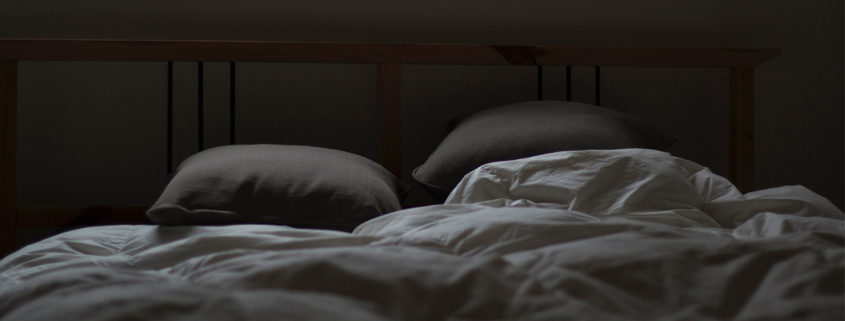Do You Feel Off? Here’s the Secret to Balancing Your Hormones Naturally
How many hours of sleep do you get at night?
Statistics report 36.7% of adults in Tennessee sleep less than seven hours in a 24-hour period. Guidelines say you need seven hours or more for optimal health.
If you want to balance your hormones naturally, you need quality sleep.
Take a second to think about your nightly routine.
Do you lie in bed reading articles on your phone? Or watch TV until you doze off? Do you wake up multiple times throughout the night?
We can see you typing now…
But, Fitbit said I slept eight hours!
Sure, you might be lying in bed for an appropriate amount of time, but you may not be getting quality sleep.
The National Sleep Foundation said the key determinants of quality sleep are:
How does your sleep stack up?
When your body is well-rested, it produces more growth hormones, and stress hormones are metabolized. You lower your blood sugar and decrease cravings.
On the other side of the pillow, sleep deprivation is associated with an increased risk for obesity, diabetes, cardiovascular disease, stroke, and depression.
Let’s add menopause and andropause to the pot.
Hormone imbalances cause weight gain, hair loss, depression, anxiety, hot flashes, low libido, and a general feeling of unwellness.
Abracadabra, you’re now a hermit.
When you don’t feel well, it’s easy to close the blinds and hide under the covers. You miss out on living life because you feel drained, frumpy, irritable, and off.
We wish there were a counterspell to help people naturally produce more estrogen or testosterone.
But, despite our best efforts or intentions, we don’t get to control the aging process that comes with being human (bioidentical hormone replacement therapy does slow it down though).
However, you can maximize other things to help minimize the symptoms related to the drop in hormones.
And that starts with quality sleep.
Here’s something else to consider.
We see patients who make the mistake of relying on medication, such as Ambien, to get some shut-eye.
But taking sleep medication is a short-lived strategy with a long list of bad side effects, from drowsiness and headaches to memory loss and diarrhea.
So, here’s what you need to do to sleep well, reclaim your energy, and balance your hormones naturally.
1. Eat a high-protein breakfast in the morning.
2. Limit your coffee intake to one cup per day (and no caffeine 6 hours or less before bedtime).
3. Take a magnesium supplement to relieve insomnia.
4. Stay hydrated throughout the day.
5. Stop eating three hours before bedtime.
6. Pick a bedtime, and stick to it!
7. Skip sleep medication, but, if you need a little assist, try melatonin.
8. Meditate — it can be as easy as focusing on your breath for five minutes.
9. Establish a ‘No Pet’ rule for your bed.
10. Turn off night lights, TVs, and lamps. Immerse yourself in complete darkness.
11. Keep electronic devices out of the bedroom.
12. If you like to read before bed, use a print book or an e-reader that doesn’t emit light.
13. Treat your bedroom as a sanctuary for only sleep and sex.
Your body functions better when you get quality sleep.
But, every body is different. People who have a chronic illness, are stressed, or have a history of depression or anxiety may be at more risk for poor sleep. Poor sleep could also be a sign of a medical condition.
Talking with your doctor or a hormone specialist is the best first step you can take. Then, consider what your habits are each night. How can you improve your chances of falling asleep quickly and staying asleep until morning?
To balance your hormones naturally, you’ll need a little knowledge and lots of discipline.
Was there something on this list you could change today to get better sleep?

